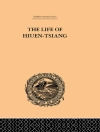In ‘The Heart of Penelope, ‘ Marie Belloc Lowndes weaves a compelling narrative that intricately explores themes of love, betrayal, and redemption. Set against the backdrop of early 20th-century England, the novel presents Penelope, a woman torn between societal expectations and her inner desires. Lowndes employs a rich, descriptive prose style that immerses readers in the emotional landscape of her characters, while also reflecting the psychological realism prevalent in the literary context of her time. This work showcases her ability to blend suspense with deep emotional insight, revealing the complexities of human relationships through Penelope’s poignant journey. Marie Belloc Lowndes was a prominent English author, known for her knack for crafting psychological thrillers and her acute observations of social dynamics. Growing up in a literary family and experiencing the turbulence of her era, including the suffrage movement, Lowndes was profoundly influenced by the shifting roles of women in society. Such personal insights likely informed her portrayal of Penelope—a character that embodies both strength and vulnerability, reflective of the author’s own perspectives on female identity in a rapidly changing world. For readers seeking a rich, character-driven novel that examines the intricacies of love and societal constraint, ‘The Heart of Penelope’ is an essential addition to their literary repertoire. Lowndes’s masterful storytelling and insightful character development invite profound reflection on one’s own heart and choices, making it not merely a story to read but an experience to ponder.
Tentang Penulis
Marie Belloc Lowndes (1868–1947) was a prolific British novelist and writer known for her engrossing psychological narratives and engaging portrayals of the Edwardian era. Born into a family with intellectual leanings, she was the sister of Hilaire Belloc, an influential writer and historian. Lowndes achieved significant literary recognition with her book ‘The Lodger’ (1913), a suspenseful novel that later inspired Alfred Hitchcock’s film ‘The Lodger: A Story of the London Fog’ (1927), marking her influence on both literature and early cinema. In ‘The Heart of Penelope’ (1911), Lowndes craftily explores her distinctive theme of social dynamics within an intriguing narrative fabric, revealing the psychological intricacies of her characters. Her masterful storytelling conveys the particular ethos of the time, as she delves into the lives of women navigating societal norms. Lowndes’ literary style is characterized by an acute psychological insight, clever use of irony, and a focus on the subtleties of human behavior, all trademarks that fortify her place in the canon of early 20th-century authors. While she may not be as widely read today, her works remain a testament to her keen observation and narrative agility, preserving her legacy in the chronicles of English literature.












